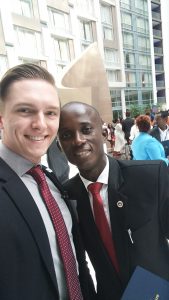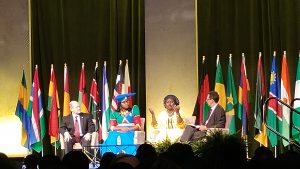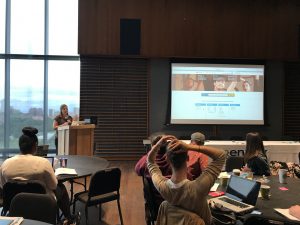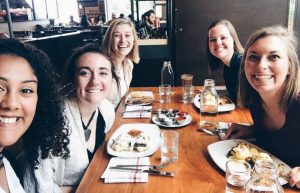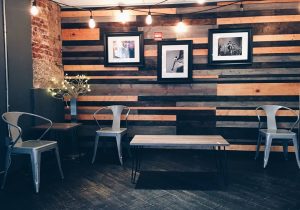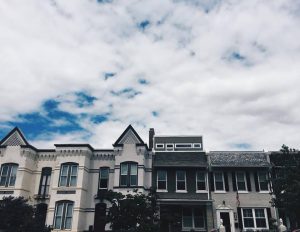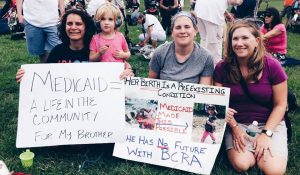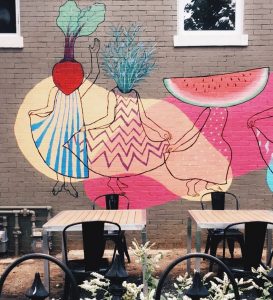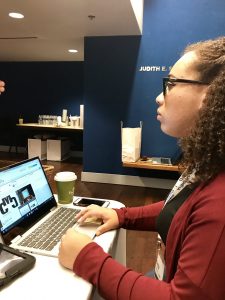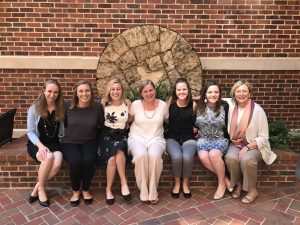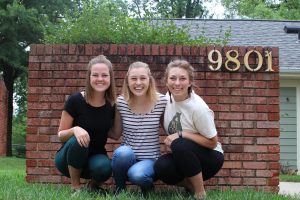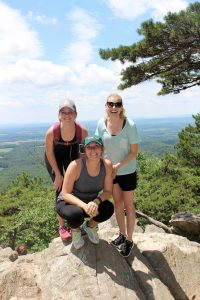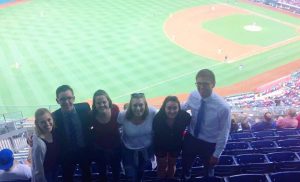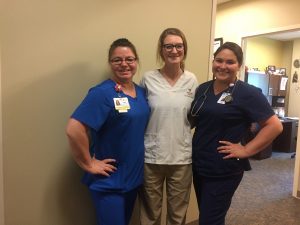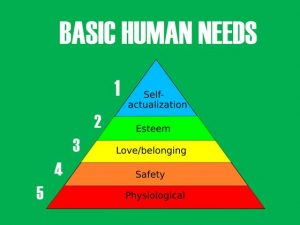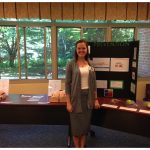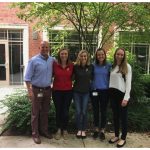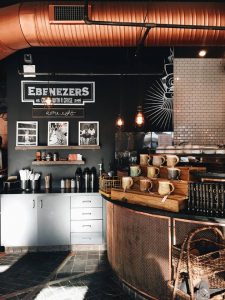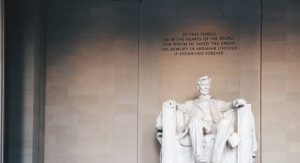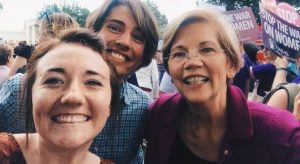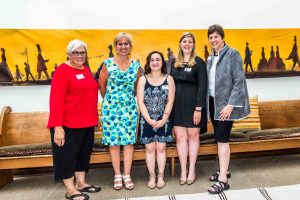Everything was worth it: these are the words that come to my mind when I think of the long hours spent compiling spreadsheets, scrutinizing travel documents, making supply orders, and ultimately working with an incredibly dedicated team to ensure the fluid execution of an event with over 1,000 participants. Admittedly, there were days when my demeanor was less inspired and moments when I allowed the aura of the capitol to distract me from the value of the work that I was a part of. This compounded with my natural introversion, resulting in a self-induced monotony, a symptom that allowed for days to pass quickly, the city to become a mere blur, and leisure hours to be spent inflecting in hopes of uncovering a solution. As luck would have it, this was one of those conflicts that was solved with the simple virtue of patience, leading to a personal victory over monotony.
 I shall preface this triumph with a description of some realizations that my experience with IREX allowed me to discover. I have always known that, when faced with important tasks of any kind, my work ethic becomes trenchant, meaning that I focus the entirety of my efforts on the details of a project. Though the intent behind such a practice is to maximize efficiency, the transposition of this practice into the professional workplace resulted in a mental drain that affected my ability to focus and recharge over time. Another realization, partially derived from the aforementioned point, manifested itself through a consistent frustration with the lack of perceived impact that I saw my work having; my default thought was always “I still do not feel as if this is enough,” something that I always struggled with in the humanitarian field. Of course, my deeds were acknowledged and often rewarded with more responsibilities, but the distance between myself and the Fellows that we were working with still seemed so vast. These realizations taught me that bringing lightheartedness into your work is just as important as bringing seriousness and concentration. Furthermore, I discovered that I am inherently inclined to desire perceptible results in my work; the tangible fruits that can be gleaned through dedicated labor is a crucial step for my consciousness to appreciate the processes that compose the project.
I shall preface this triumph with a description of some realizations that my experience with IREX allowed me to discover. I have always known that, when faced with important tasks of any kind, my work ethic becomes trenchant, meaning that I focus the entirety of my efforts on the details of a project. Though the intent behind such a practice is to maximize efficiency, the transposition of this practice into the professional workplace resulted in a mental drain that affected my ability to focus and recharge over time. Another realization, partially derived from the aforementioned point, manifested itself through a consistent frustration with the lack of perceived impact that I saw my work having; my default thought was always “I still do not feel as if this is enough,” something that I always struggled with in the humanitarian field. Of course, my deeds were acknowledged and often rewarded with more responsibilities, but the distance between myself and the Fellows that we were working with still seemed so vast. These realizations taught me that bringing lightheartedness into your work is just as important as bringing seriousness and concentration. Furthermore, I discovered that I am inherently inclined to desire perceptible results in my work; the tangible fruits that can be gleaned through dedicated labor is a crucial step for my consciousness to appreciate the processes that compose the project.
The discoveries that I made about myself explain why the Summit (the gathering of all 1,000 Mandela Washington Fellows in D.C. for a three-day conference) was the climax of my internship with IREX; it is a major component of why I can confidently say that everything was worth it. Fundamental human interaction with various Fellows was enough to reignite my passion for working with others to provide support and access to the resources that can change lives. There was a moment, at the closing of the Summit, when the Fellows received hand-tailored certificates from the State Department, marking their fulfillment of the Fellowship’s requirements. It was during the distribution of these mementos that I realized just how much of an impact a small team can have on the lives of a thousand people, and in turn, how much of an impact those thousand will have on ten thousand more, and the process continues to repeat itself. A common adage echoed by each of the Fellows was that “We are the future of Africa,” and to simply have served on a program that could provide that degree of confidence and hope in the future is enough to bring those same emotions to my heart and even tears of happiness to my eyes. Above all, my experience as a CAPS Fellow has given me the resolve to persevere; in the maw of hatred and bigotry, humanity will always serve as a vehicle of hope in our world. Thus, it is our duty to serve one another, lead responsibly when called, follow passionately when necessary, and ultimately know that the good fight will be worth each ounce of effort when we witness our actions positively impacting those who seek simply to sow hope in places where it is all but lost.